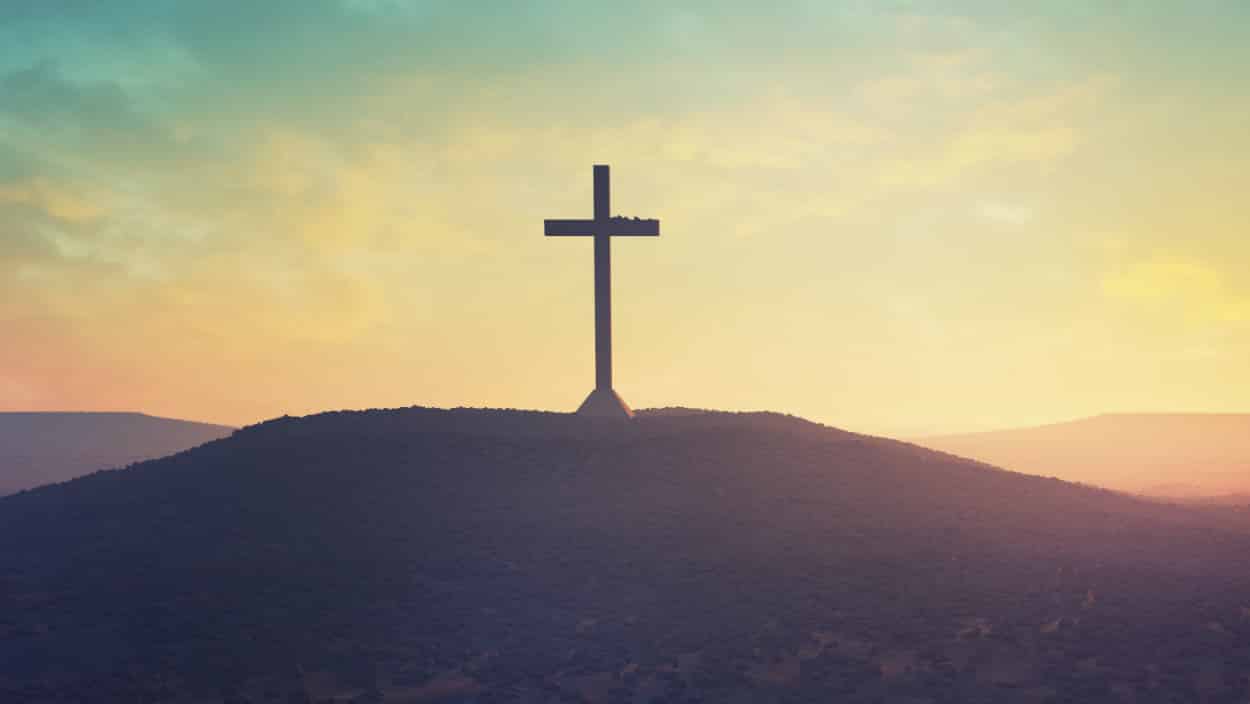Several years ago, walking through the woods behind our Seminary property in late April, as my eyes strained to spot morels, I was startled by the shy yet imposing beauty of tiny plants of yellow violets. Aren’t violet supposed to be blue? Those little, insignificant, fragile yellow flowers were claiming their existence. They were just there. Those unusual plants could not account for their existence; as couldn’t every other bud, future leaf, tree and critter in our woods. Come to think of it, neither can I, or any other human being.
From those tiny plants to the most important human being, to the largest star, they are all unable to account for themselves. All called into existence by the only One who can account for his existence for he exists from all eternity and is the source of all life. This simple consideration is a very humbling experience indeed. The power and the majesty of God’s design visible in a small plant that was supposed to be of a different color. Its insignificance underscores our own insignificance. Apart from the tears of those who love us and a sigh of relief from those who might hate our guts, nothing would change in this world as we depart from it in death.
This is the same insignificance spelled out by the parable within the Gospel of Matthew (18:23-35): We owe God a huge amount: our very existence, not only, but also, in addition to that gift which we share with all other creatures, we owe him our ability to respond, to transcend ourselves, our call to love, to be like him, to become part of him and share in everything else that is divine.
By comparison, what other people owe us is a negligible amount.
Today, we are invited, actually urged, to grasp as much as it is humanly possible of what God, in his infinite love, has called us to be. We are urged to look at the Crucifix to see what Jesus had to do in order to change our insignificance into total significance. Also that is the huge amount we owe God. Let us never forget it. Not just because it is extremely important, which, of course, it is, but because our salvation depends on it. There is no way we can pay him back. What can we reasonably do to pay back for Jesus’ blood?
So, once we realize that we should, but we cannot pay the Father back in full or even make a little dent into our debt, we should remind ourselves that the Lord agrees to accept our hollow promise of possible future payment. But we must know that such promise is totally unfulfillable.
At the same time, let us also remember that any offense we refuse to forgive our brothers and sisters is totally insignificant when compared to what we owe God. Say: $1,000,000,000 vs. $100.
As we interact with each other we must be constantly aware of the scorched-earth devastation that our hidden arrogance could generate. The debt owed us is payable, is forgivable, but we, in our arrogance and bruised ego, might make it nearly impossible for our brothers and sisters to repay us with those acts of kindness and love that their human frailty enables them to perform. With irrational arrogance, blinded by our pride and forgetful of our insignificance, we might choke them; we might refuse to listen to them when they cry: Be patient with me, and I will pay you back. Instead, we might throw them into the prison of isolation, hatred, slander, avoidance and slanted interpretation of what really took place.
What Jesus wishes to point out to us is the madness of blinding human arrogance: by refusing to forgive we would inflate their debt to be equal, actually larger than our debt to God. But Jesus cuts right through this foolishness: our insignificance remains, no matter how much we point out the enormity of the wrong done to us or how much it eats us inside. And most importantly, he reminds us that God cannot be forced into changing his nature, which is total, infinite love.
If God, who is pure love, wants to cancel our debt, (which he is eager to do) he has the right to cancel the debt of everyone else, which, of course, he does. But he also has the right to demand of us, as a binding condition, to write off the debts that others owe us.
God is making us a “godfather’s” offer we cannot refuse. If we want to enter into his Kingdom, we have no choice but to forgive others from the bottom of our heart. In other words: only if we are love can we be part of God who is love. Only if all resentment, all vengefulness, all unwillingness to forgive are eliminated, can we become fully divine. It is so because God intends to make our enemies, too, part of him, equally as divine as he wants us to be ourselves.
This should not be confused with the rightful punishment that those who break the law should expect for their crimes. Society must protect itself. This forgiveness is simply the only unavoidable condition placed by God so that we may be like him.
My reflection, therefore, cannot end without another very somber consideration: this passage reflects the real life of the Church. I must confess that I am painfully aware of several feuds involving Catholics, people who claim to want to go to heaven and yet are unwilling to meet God’s only condition. It pains me immensely. I do all I can; I offer to mediate between the two parties; I pray; I make sacrifices… You should too.
They were deeply disturbed, and they reported the whole affair to their master (cf. Matthew 18: 31). Even if we are reconciled with everyone, as far as we know, we should be deeply disturbed as we approach this family banquet (Eucharist). It cannot taste right, Sunday after Sunday, until we know that we have done more than our share to foster reconciliation and forgiveness. We ought to be deeply disturbed until love replaces all traces of resentment. This must happen before the final, eternal banquet in heaven will start—never to end.








